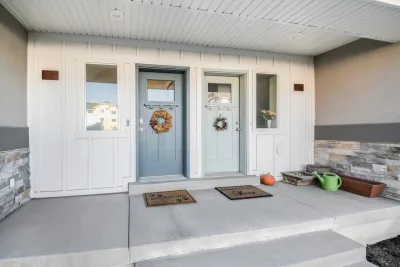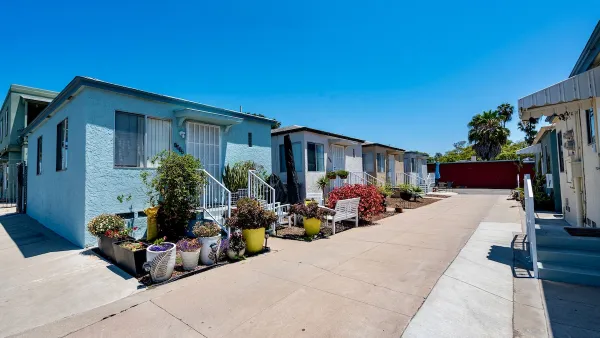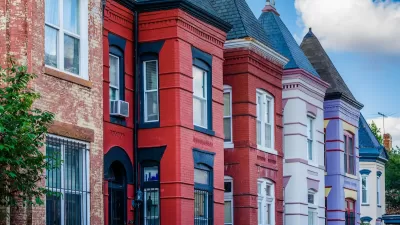Converting single-family homes to triplexes can ease the housing crisis and offer affordable, flexible options for more households. Why is it largely illegal?

A “Multigenerational Roommate House” outside of Dallas offers a model for affordable multifamily housing — if only it’s made legal in more places.
The home’s owner, Monte Anderson, “applied some savvy interpretation of local zoning rules to transform it into a legal, owner-occupied, multiunit home for five single adults ranging in age from almost twenty to over 70.” The units have separate entrances, bathrooms, and kitchenettes (full kitchens would trigger a zoning violation).
This style of housing is illegal under most U.S. zoning codes, explains Lauren Ronnander in an article for Strong Towns. But advocates for reform argue that allowing single-family conversions to duplexes or triplexes “can give residents the flexibility to live where they want at a price they can afford.”
According to Ronnander, allowing duplex conversions can also raise property values and, in turn, local tax revenue, benefiting cities. “In cities that make this type of housing legal by right, thousands of stagnant properties can be improved, raising property values, increasing tax revenue and revitalizing aging neighborhoods.” Legalizing single-family conversions can create more housing choices while avoiding the opposition and infrastructure costs that come with larger multifamily projects.
FULL STORY: This “Multigenerational Roommate House” Shows How To Heal the Housing Market

Maui's Vacation Rental Debate Turns Ugly
Verbal attacks, misinformation campaigns and fistfights plague a high-stakes debate to convert thousands of vacation rentals into long-term housing.

Planetizen Federal Action Tracker
A weekly monitor of how Trump’s orders and actions are impacting planners and planning in America.

In Urban Planning, AI Prompting Could be the New Design Thinking
Creativity has long been key to great urban design. What if we see AI as our new creative partner?

King County Supportive Housing Program Offers Hope for Unhoused Residents
The county is taking a ‘Housing First’ approach that prioritizes getting people into housing, then offering wraparound supportive services.

Researchers Use AI to Get Clearer Picture of US Housing
Analysts are using artificial intelligence to supercharge their research by allowing them to comb through data faster. Though these AI tools can be error prone, they save time and housing researchers are optimistic about the future.

Making Shared Micromobility More Inclusive
Cities and shared mobility system operators can do more to include people with disabilities in planning and operations, per a new report.
Urban Design for Planners 1: Software Tools
This six-course series explores essential urban design concepts using open source software and equips planners with the tools they need to participate fully in the urban design process.
Planning for Universal Design
Learn the tools for implementing Universal Design in planning regulations.
planning NEXT
Appalachian Highlands Housing Partners
Mpact (founded as Rail~Volution)
City of Camden Redevelopment Agency
City of Astoria
City of Portland
City of Laramie





























